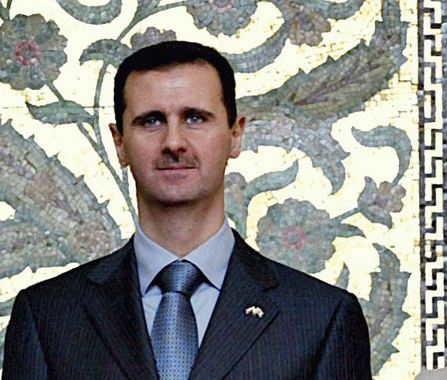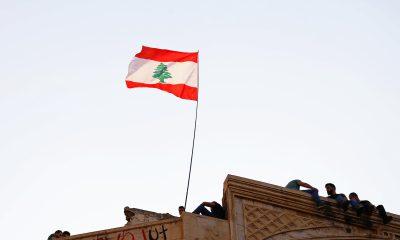Breaking
Lebanese troops beat Syrian voters outside embassy

President Bashar Assad. Wikipedia photo
BEIRUT — Lebanese troops moved to subdue a crowd of frenzied Syrians who tried to storm their embassy in Beirut to vote for President Bashar Assad, using batons and sticks to push back people on Wednesday as expat balloting started ahead of Syria’s June 3 presidential election.
The chaotic scenes – with Lebanese troops beating up the Syrians who scuffled back – unfolded about 50 meters (yards) from the embassy building in the Yarze district southeast of Beirut.
Thousands of Assad supporters had flocked to the hilltop embassy and snarled traffic outside for hours as of early Wednesday.
“With our souls, with our blood, we will sacrifice for you, Bashar,” chanted many in the crowd.
The June 3 vote is highly contentious, coming amid the civil war, and is widely expected to the Syrian president a third seven-year term in office. The Syrian opposition and its Western allies have denounced the election as a sham designed to lend Assad a veneer of electoral legitimacy.
The government in Damascus, meanwhile, has touted the vote as the political solution to the three-year-long conflict that began as an uprising against the Assad family’s more than 40-year rule.
In Lebanon, a country long dominated by its Syrian neighbor, the election turned into a massive show of support for Assad.
The clashes at the embassy broke out when the Syrian voters started pushing against the Lebanese soldiers in an effort to get into the compound. Soldiers beat the voters with batons and sticks in an effort to control them. Overwhelmed by the crowds and the heat, several people fainted.
“We speak with them politely and say `please’ in Arabic and English, but they still push forward and cause chaos. What do you expect us to do?” said one Lebanese soldier.
Nearby, a Syrian woman shouted at a Lebanese soldier, saying: “We are human beings like you. Why do you treat us this way?”
Since morning hours, thousands of people arrived, some on the back of pickup trucks, others in cars and buses plastered with the Syrian white-red-and-black flag and pictures of Assad. Many abandoned their cars to walk the last few kilometers (miles) to the embassy because traffic was at a standstill.
“I came to vote for President Bashar Assad because we love him and he is a good man,” said Abraham Dekermenjian, a Syrian of Armenian descent who fled from his war-devastated city of Aleppo.
Dekermenjian, formerly a plastic factory worker, spoke as he took a break from walking, sitting on the pavement, a cigarette in one hand and a bottle of water in the other.
Wahid Ibrahim al-Beik, a 30-year-old minibus driver in Lebanon, had a Syrian flag tied around his neck and a headband around his forehead that read: “Syria is protected by God.”
“I am going to vote for his excellency President Bashar Assad because there is no one like him and we don’t accept anyone other than him,” he said.
There are about 1.1 million Syrians who live in Lebanon as refugees. Many among the refugees and opposition supporters abroad are expected to boycott the election, which has two other candidates in the race but they are seen as mostly symbolic contenders and little known figures.
The expatriate voting was to take place in Syrian embassies and consulates abroad where the staff has not defected to the opposition. Some European countries, including France and Germany, have said they will not allow Syrian expatriate voting to be held in their capitals.
Polls were to be open from 7 a.m. to 7 p.m. but Syrian Ambassador in Beirut Ali Abdel-Karim Ali said voting could be extended further into the evening.























